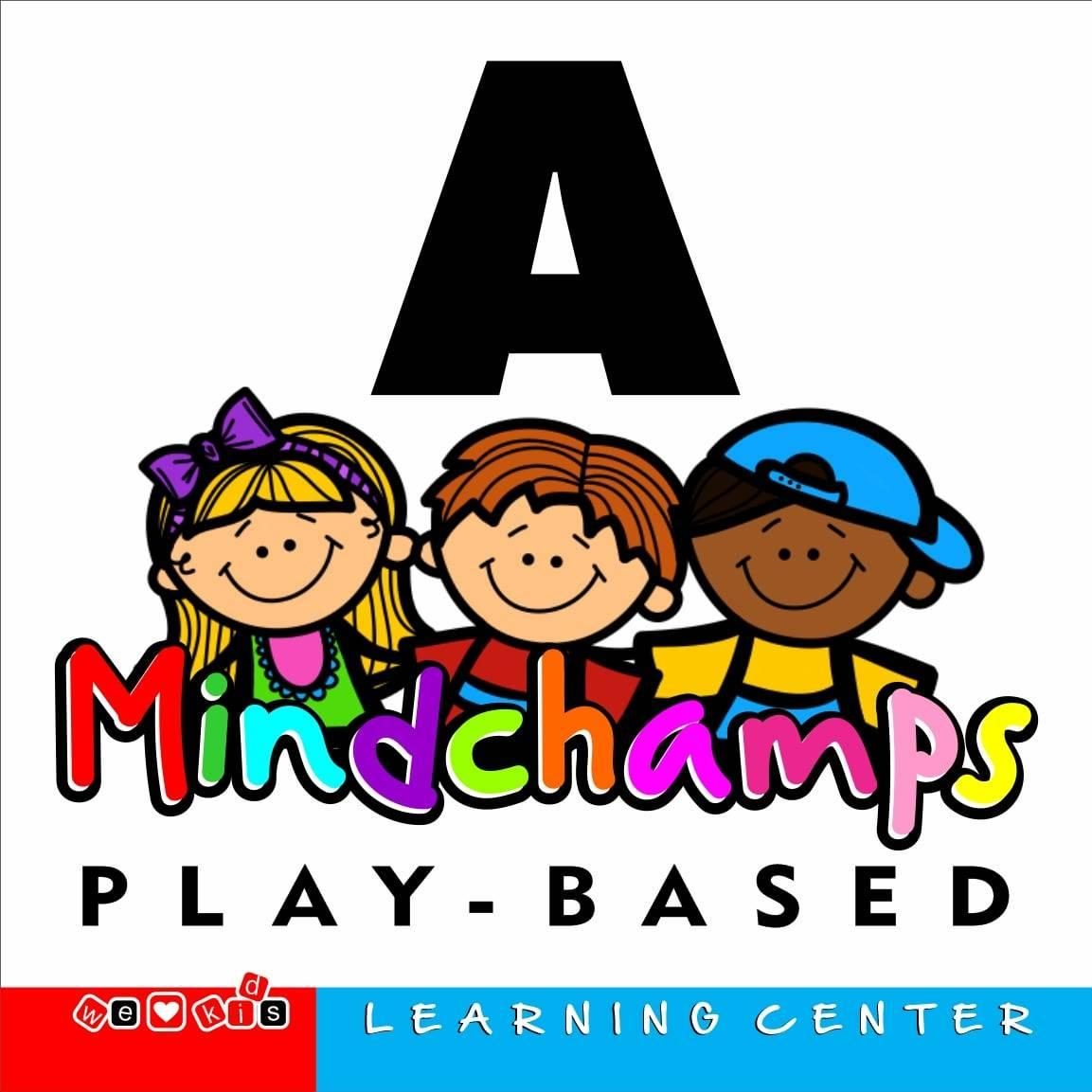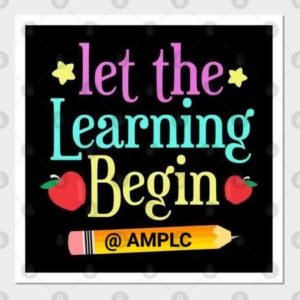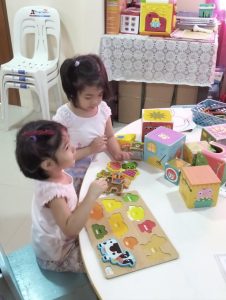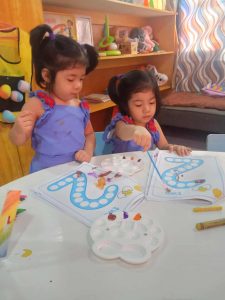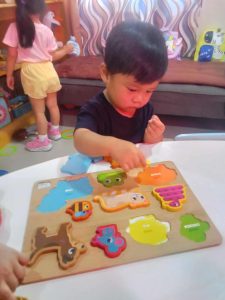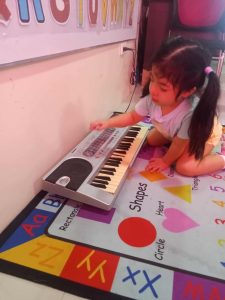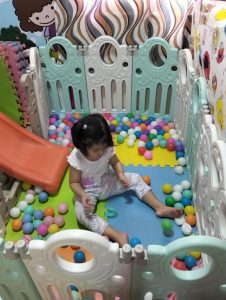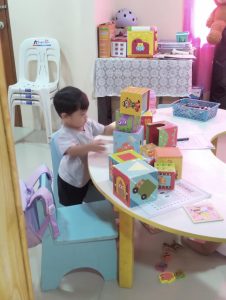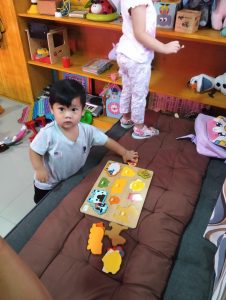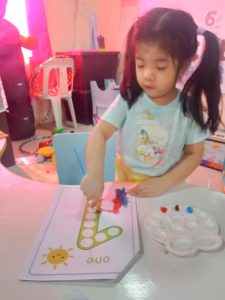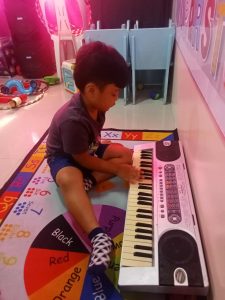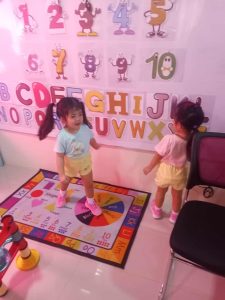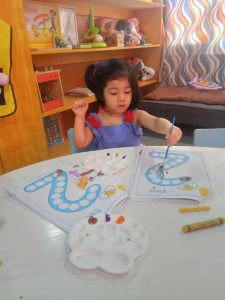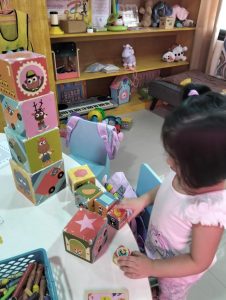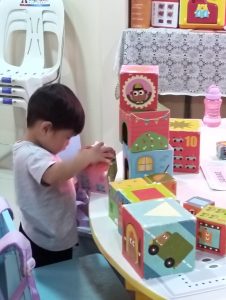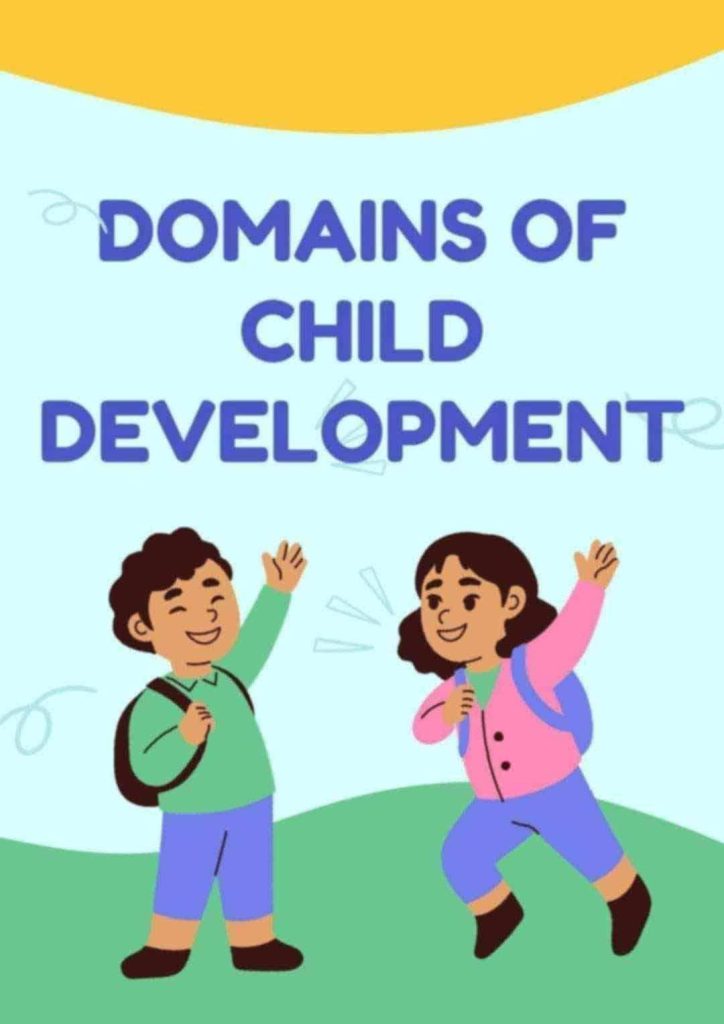
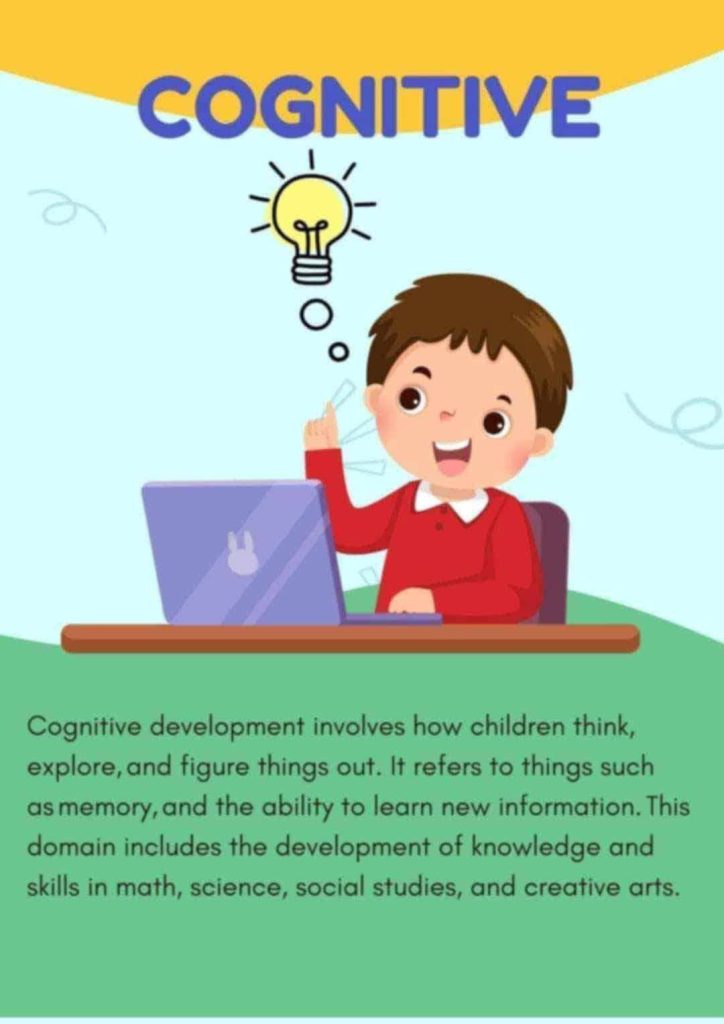
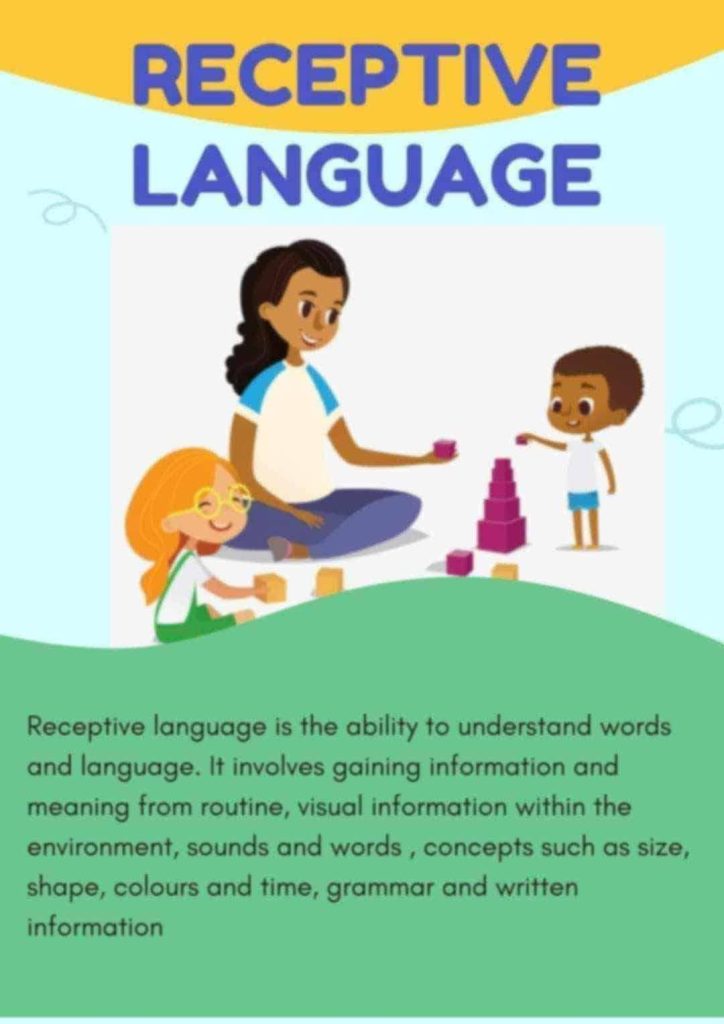
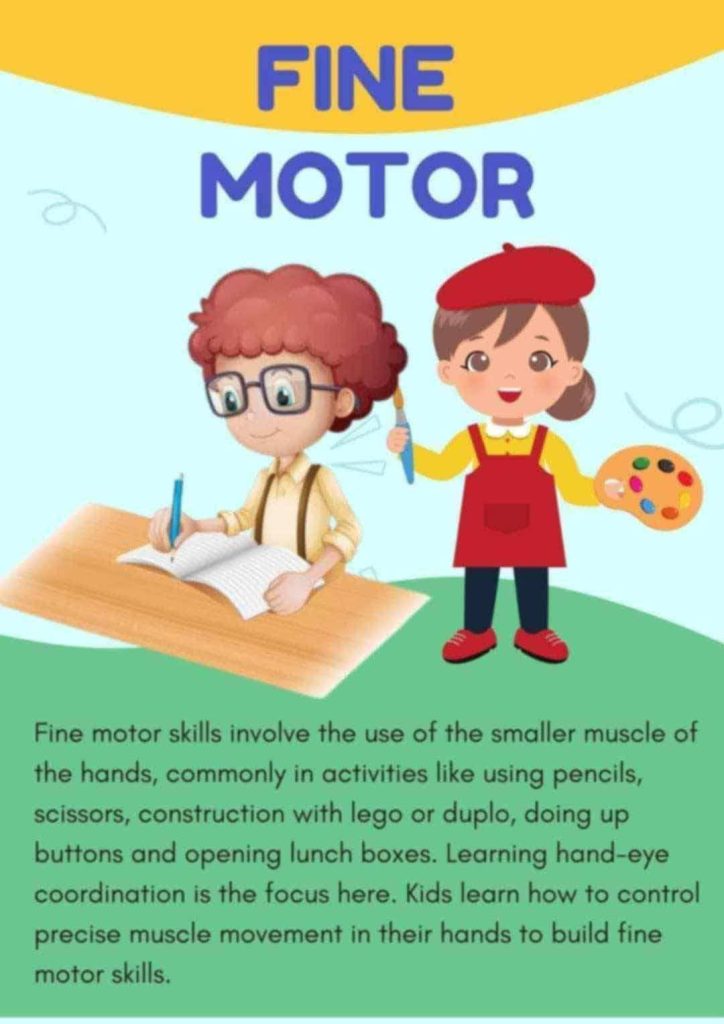
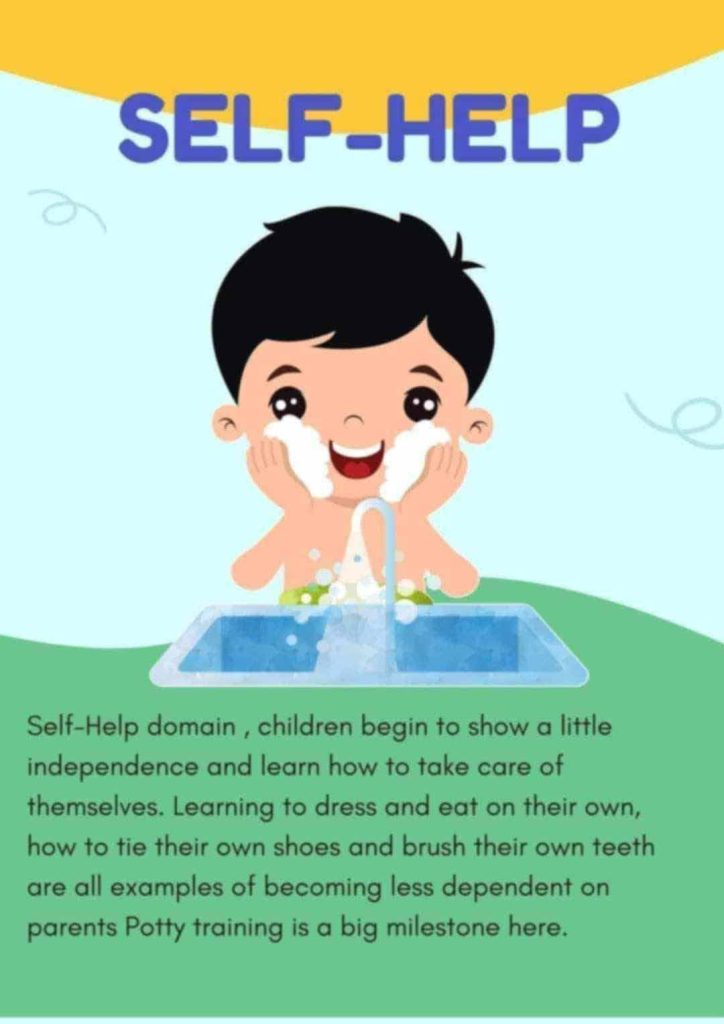
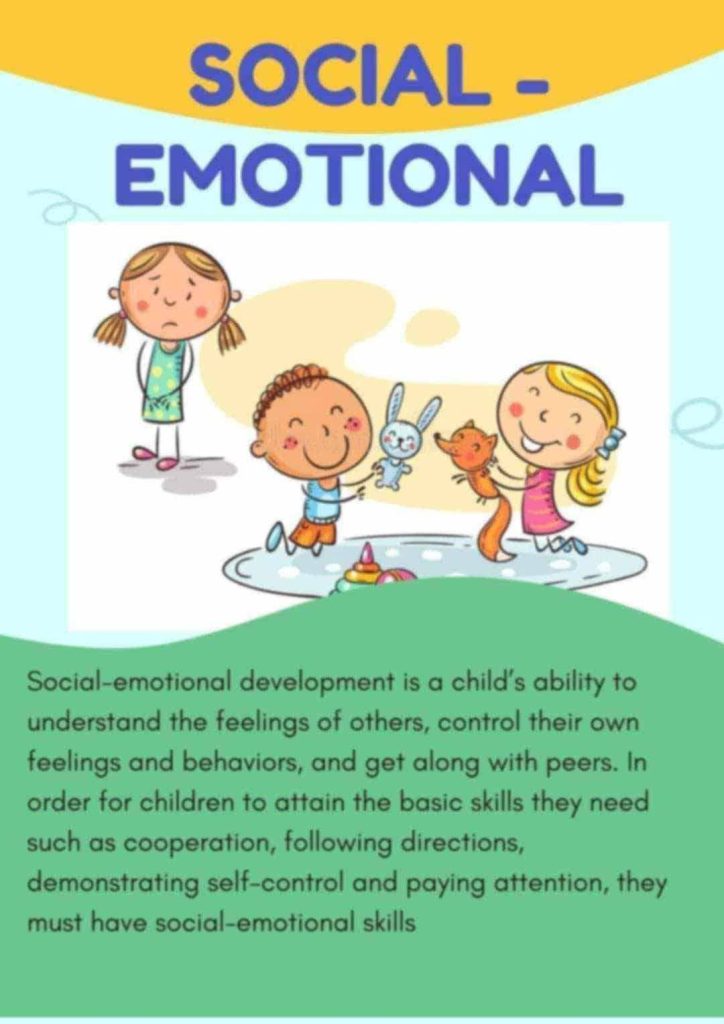
Play-based learning
This play-based program engages toddlers in activities that enhance gross and fine motor skills, cognitive development and social interaction with peers.
Reading and Writing
Reading and writing are foundational to nursery education because they play a critical role in a child’s early cognitive, emotional, and social development. Here’s why they’re so important:
1. Language Development
- Reading helps children build vocabulary and understand sentence structure.
- Writing activities (even scribbling) develop fine motor skills and help children connect spoken language to symbols.
2. Cognitive Growth
- Reading exposes children to new ideas, concepts, and ways of thinking.
- Writing encourages memory development, problem-solving, and creativity.
3. Communication Skills
- Children learn to express thoughts and emotions through both spoken and written words.
- Reading stories improves listening and comprehension skills, which are vital for communication.
4. Preparation for School
- Early literacy skills are strong predictors of later academic success.
- Familiarity with letters, sounds, and books lays the groundwork for formal reading and writing instruction.
5. Social and Emotional Development
- Stories help children understand emotions, empathy, and social situations.
- Writing or drawing about their experiences gives children a sense of self and helps process feelings.
6. Love for Learning
Engaging reading and writing experiences in early years foster a positive attitude toward school and learning.
Academic Tutoring
Academic tutoring in nursery education plays a vital role in supporting and enhancing a child’s early learning experiences. Here are the key reasons why it is important:
1. Individualized Attention
- Tutors can tailor lessons to meet each child’s unique learning pace and style.
- Early support helps identify and address learning difficulties before they become bigger challenges.
2. Stronger Foundation in Core Skills
- Tutoring reinforces basic literacy and numeracy skills, crucial for future academic success.
- It helps children grasp early concepts with greater confidence and clarity.
3. Boosts Confidence and Motivation
- Positive learning experiences build self-esteem and encourage a love of learning.
- Children who feel successful are more likely to participate actively in class.
4. Encourages School Readiness
- Tutors help children develop essential school-readiness skills such as attention, following instructions, and working independently.
- This smooths the transition into more structured classroom environments.
5. Supports Social and Emotional Development
- One-on-one or small-group tutoring helps children learn social interaction and communication in a nurturing setting.
- Tutors can model positive behavior and provide emotional encouragement.
6. Parental Support and Involvement
Tutors often work closely with parents to share progress and strategies, enhancing home learning environments.
